Cell Cycle/Checkpoint
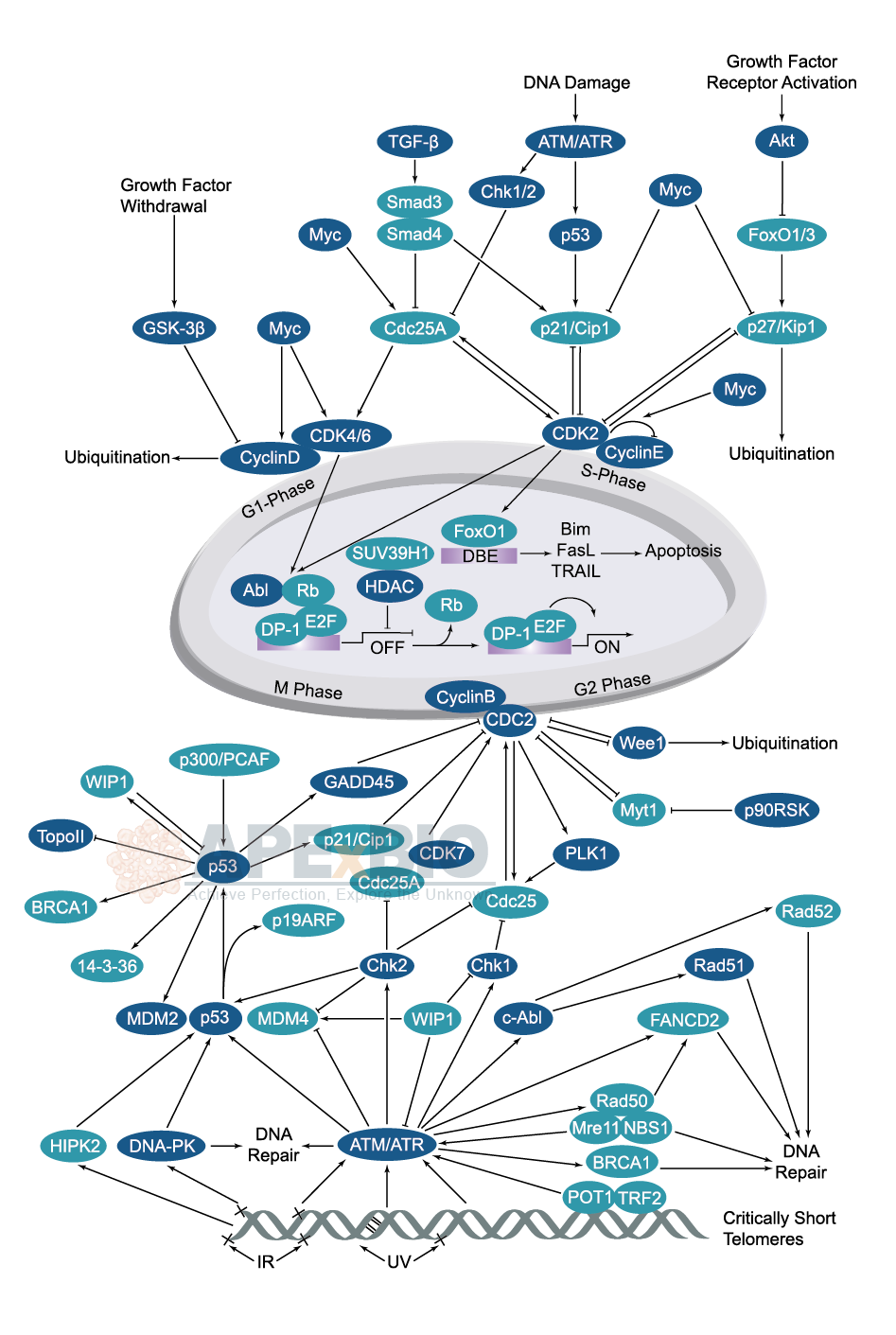

The cell cycle is consisted of 4 main phases: Gap 1 (G1), DNA replication (S), Gap 2 (G2), and mitosis (M). There are “checkpoints” mechanism regulates the transition between these phases, at the G1/S boundary, in the S-phase and during G2/M phases. Cell can only pass through these checkpoints when signaling factors are activated and free of DNA damage. Important proteins that control cell cycle events and checkpoints are cullins, cyclins, cyclin-dependent kinases (Cdks), p53 and their inhibitors etc. Cdks family (Cdk2, Cdk3, Cdk4 and Cdk6) are Ser/Thr kinases that regulate cell cycle progression in association with cyclin binding partners (cyclin D, cyclin E and cyclin A) during all four phases. p53 halts the cell cycle if the DNA is damaged and allowing time for DNA repair to progress; it can also initiate apoptosis if DNA damage is too severe to be repaired.
-
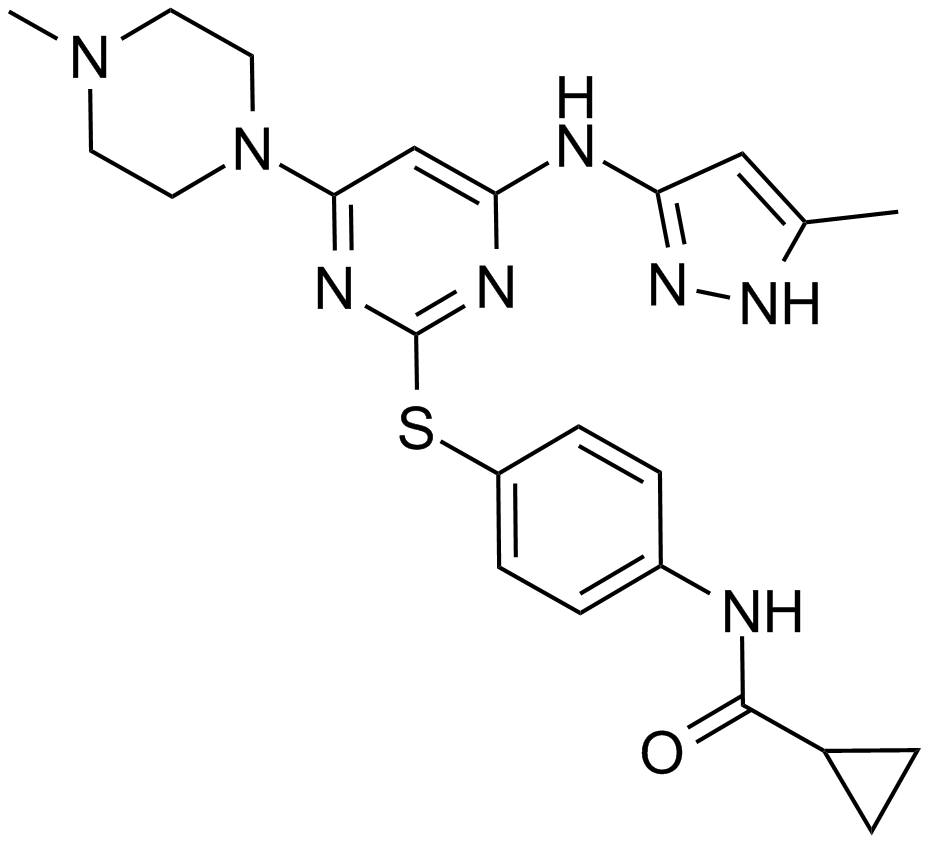 A4111 VX-680 (MK-0457,Tozasertib)1 CitationTarget: Aurora KinasesSummary: Aurora kinase inhibitor
A4111 VX-680 (MK-0457,Tozasertib)1 CitationTarget: Aurora KinasesSummary: Aurora kinase inhibitor -
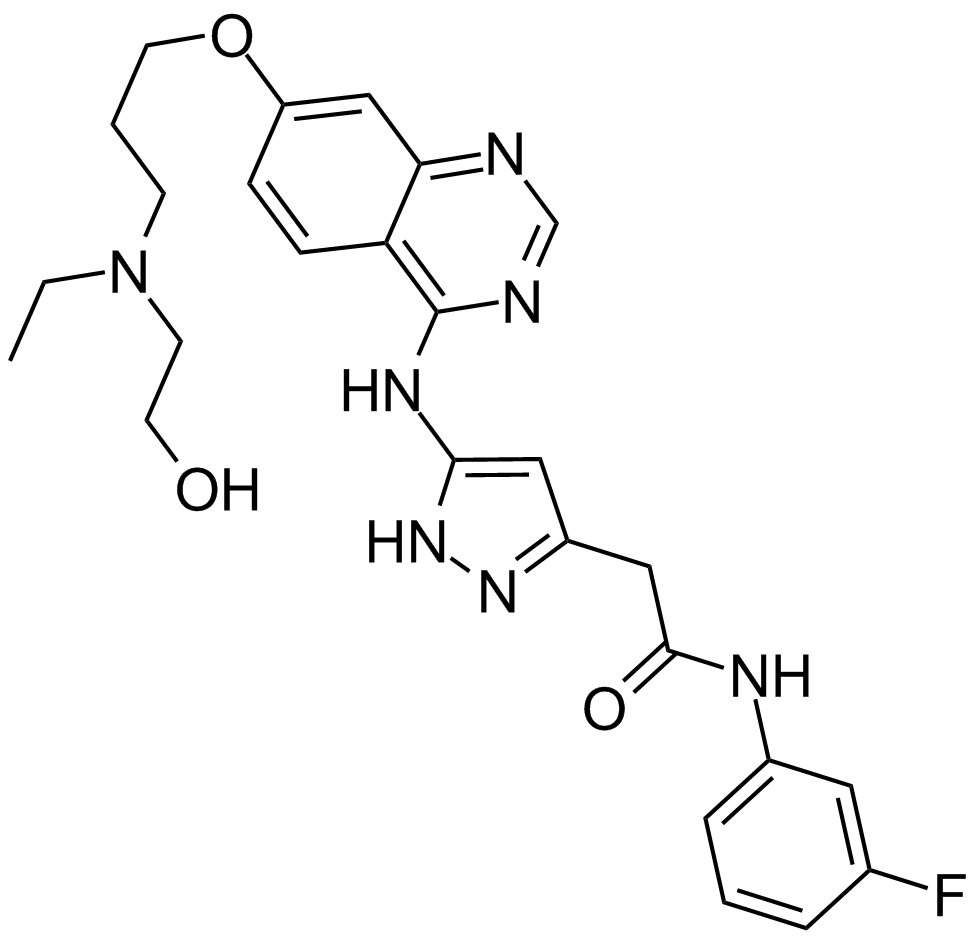 A4112 Barasertib (AZD1152-HQPA)6 CitationTarget: Aurora KinasesSummary: Aurora Kinase B inhibitor, Potent and selective
A4112 Barasertib (AZD1152-HQPA)6 CitationTarget: Aurora KinasesSummary: Aurora Kinase B inhibitor, Potent and selective -
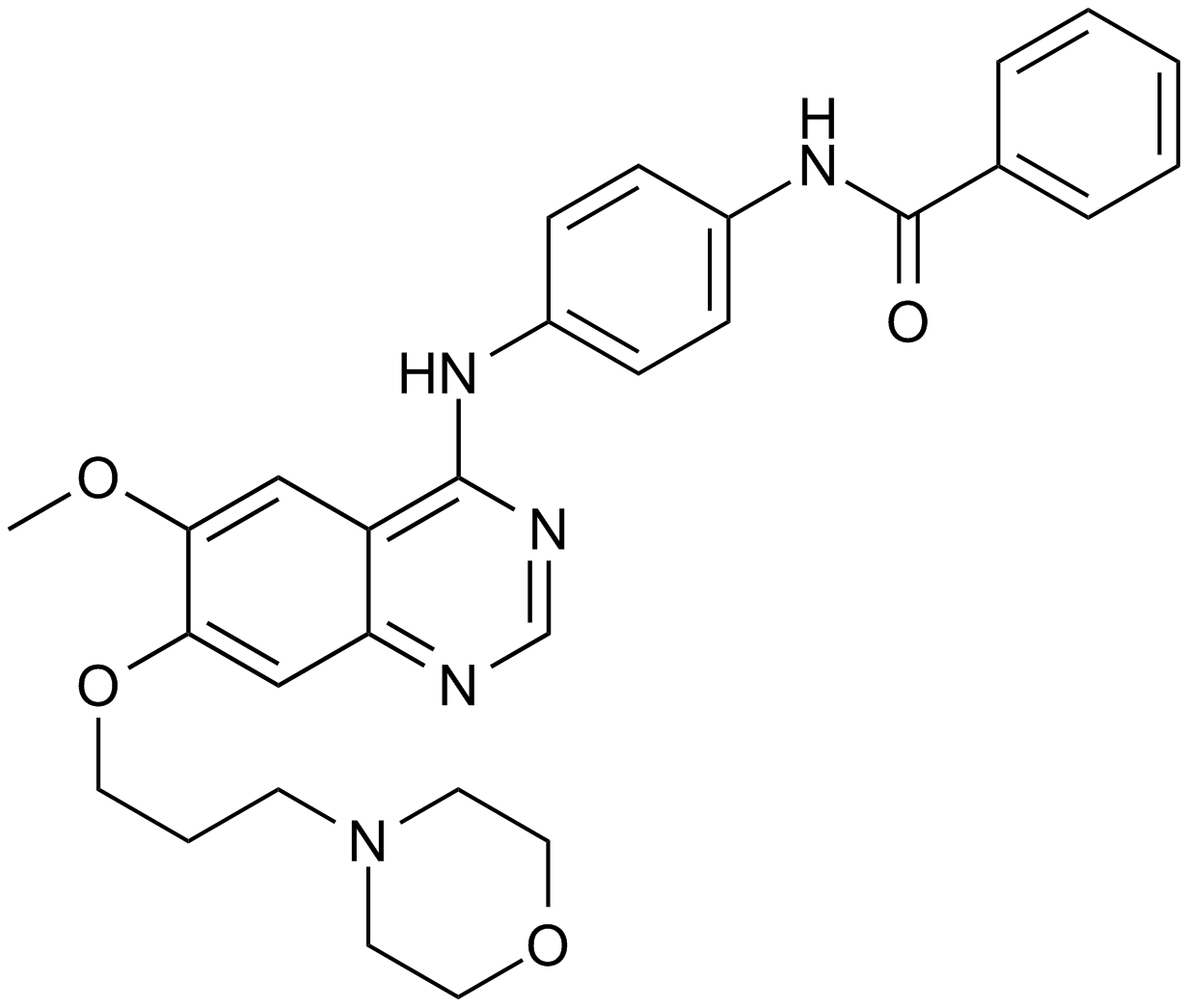 A4113 ZM 4474392 CitationTarget: Aurora Kinases|MEK|Src|LckSummary: Aurora Kinase inhibitor,potent and selective
A4113 ZM 4474392 CitationTarget: Aurora Kinases|MEK|Src|LckSummary: Aurora Kinase inhibitor,potent and selective -
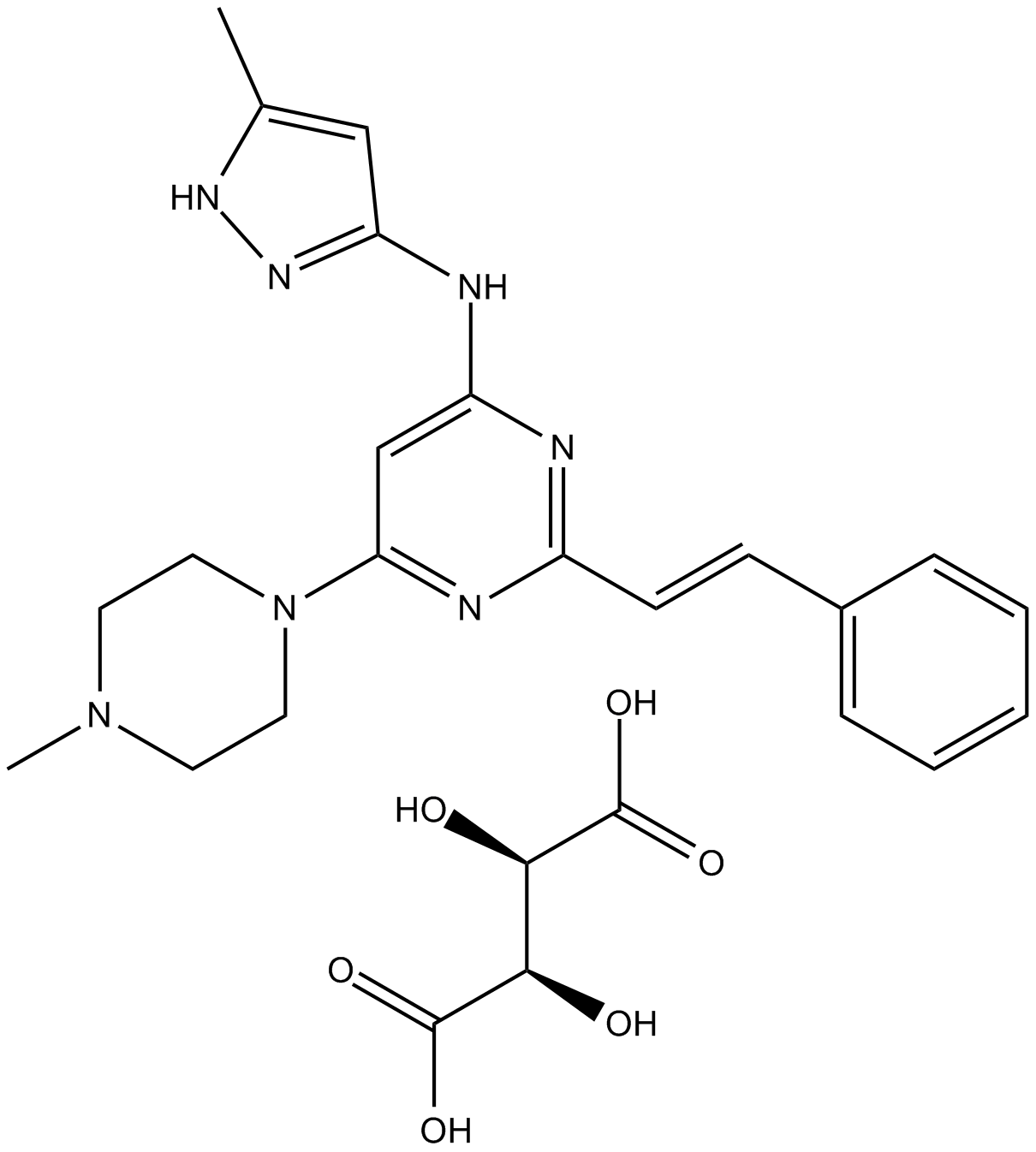 A4129 ENMD-2076 L-(+)-Tartaric acidSummary: Aurora kinases inhibitor
A4129 ENMD-2076 L-(+)-Tartaric acidSummary: Aurora kinases inhibitor -
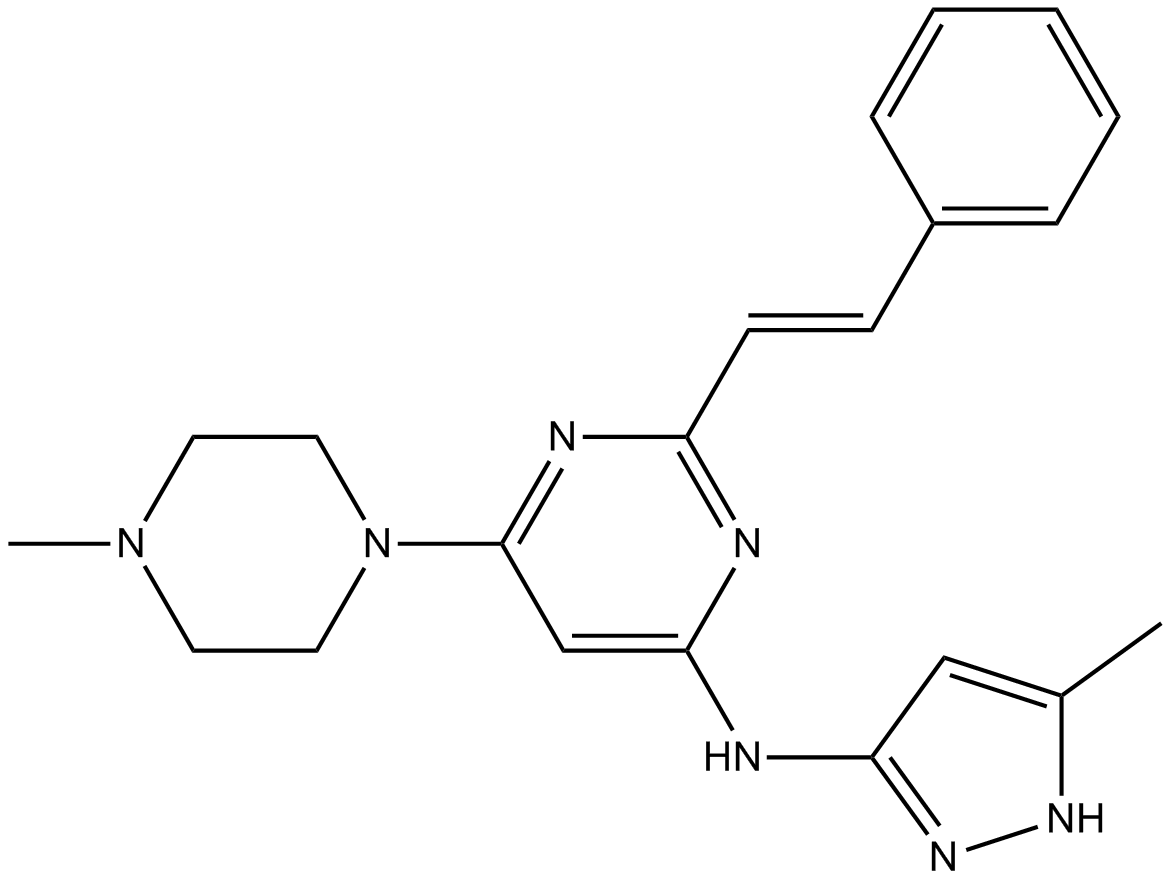 A4130 ENMD-2076Target: Aurora Kinases|FLT3|RET|Src|VEGFR3/FLT4|NTRK1/TRKA|CSF-1R/c-FmsSummary: Selective Aurora A/Flt3 inhibitor
A4130 ENMD-2076Target: Aurora Kinases|FLT3|RET|Src|VEGFR3/FLT4|NTRK1/TRKA|CSF-1R/c-FmsSummary: Selective Aurora A/Flt3 inhibitor -
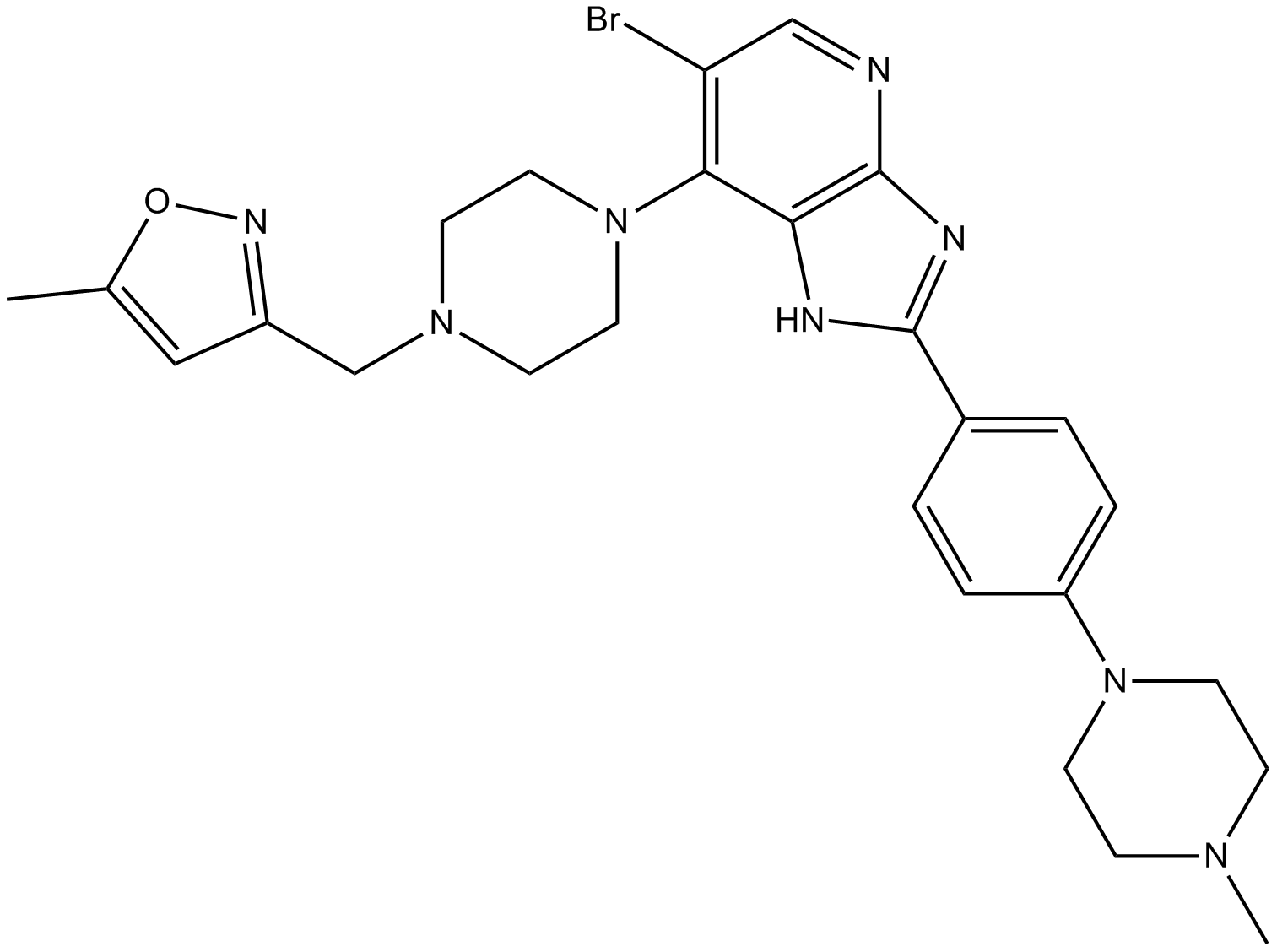 A4132 CCT137690Target: Aurora KinasesSummary: Aurora A/B/C inhibitor
A4132 CCT137690Target: Aurora KinasesSummary: Aurora A/B/C inhibitor -
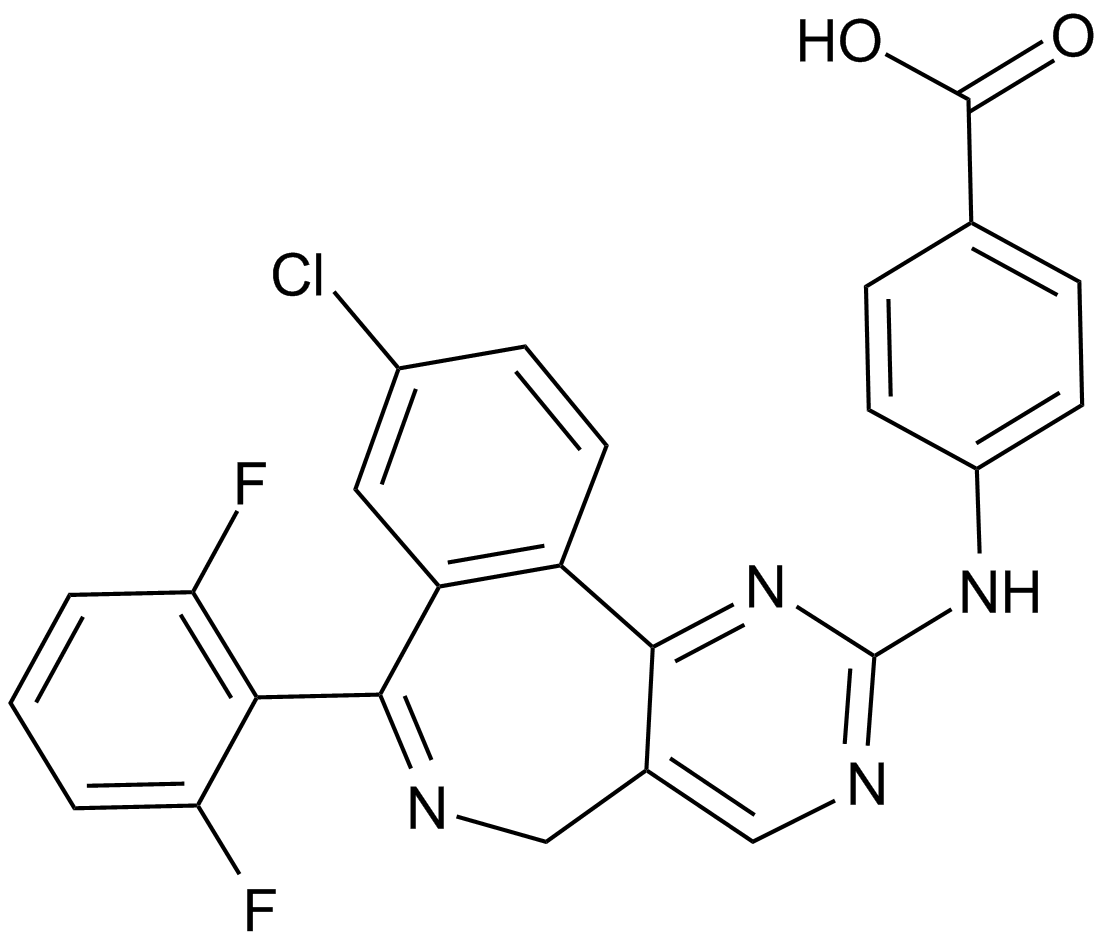 A4114 MLN8054Target: Aurora KinasesSummary: Aurora A inhibitor
A4114 MLN8054Target: Aurora KinasesSummary: Aurora A inhibitor -
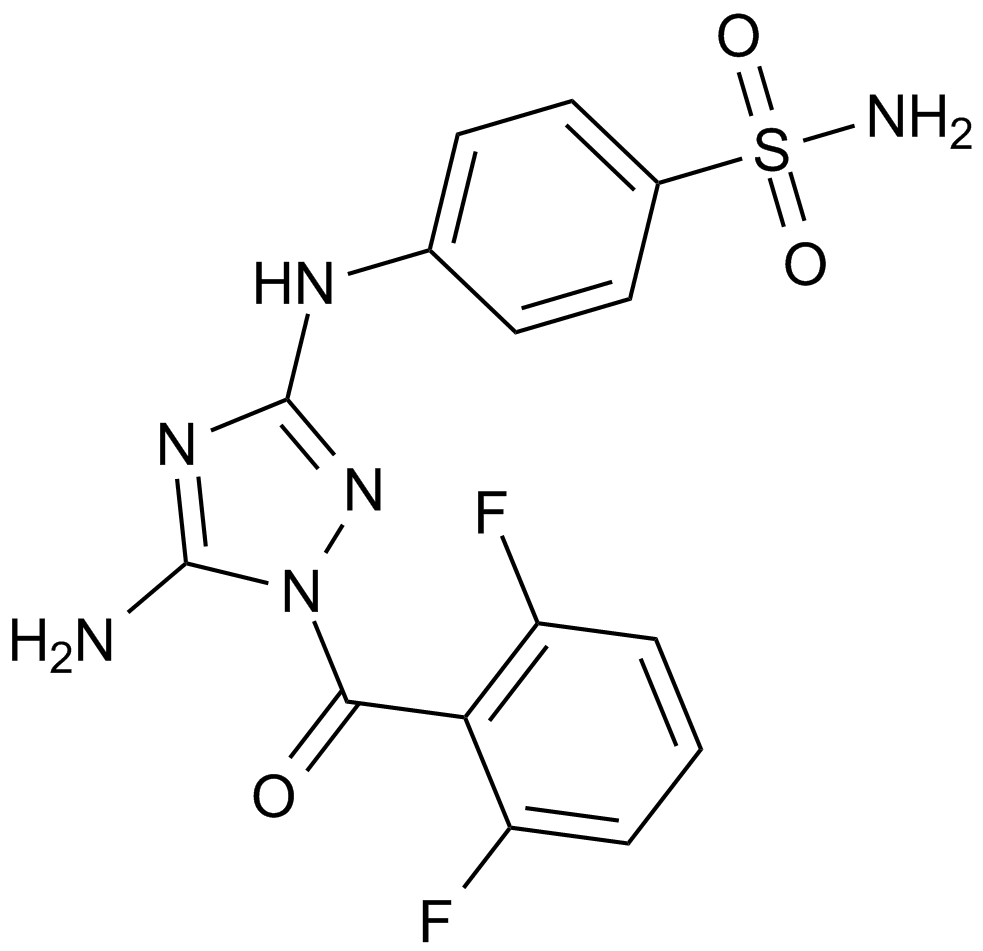 A4115 JNJ-77066211 CitationTarget: Cyclin-Dependent Kinases|Aurora KinasesSummary: Potent CDK/Aurora kinase inhibitor
A4115 JNJ-77066211 CitationTarget: Cyclin-Dependent Kinases|Aurora KinasesSummary: Potent CDK/Aurora kinase inhibitor -
 A4116 Danusertib (PHA-739358)2 CitationTarget: Aurora KinasesSummary: Pan-aurora kinase inhibitor
A4116 Danusertib (PHA-739358)2 CitationTarget: Aurora KinasesSummary: Pan-aurora kinase inhibitor -
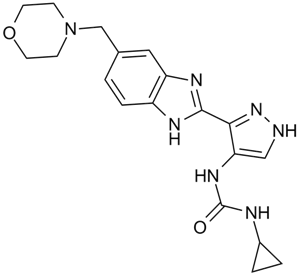 A4117 AT9283Summary: Aurora kinase/JAK inhibitor
A4117 AT9283Summary: Aurora kinase/JAK inhibitor


